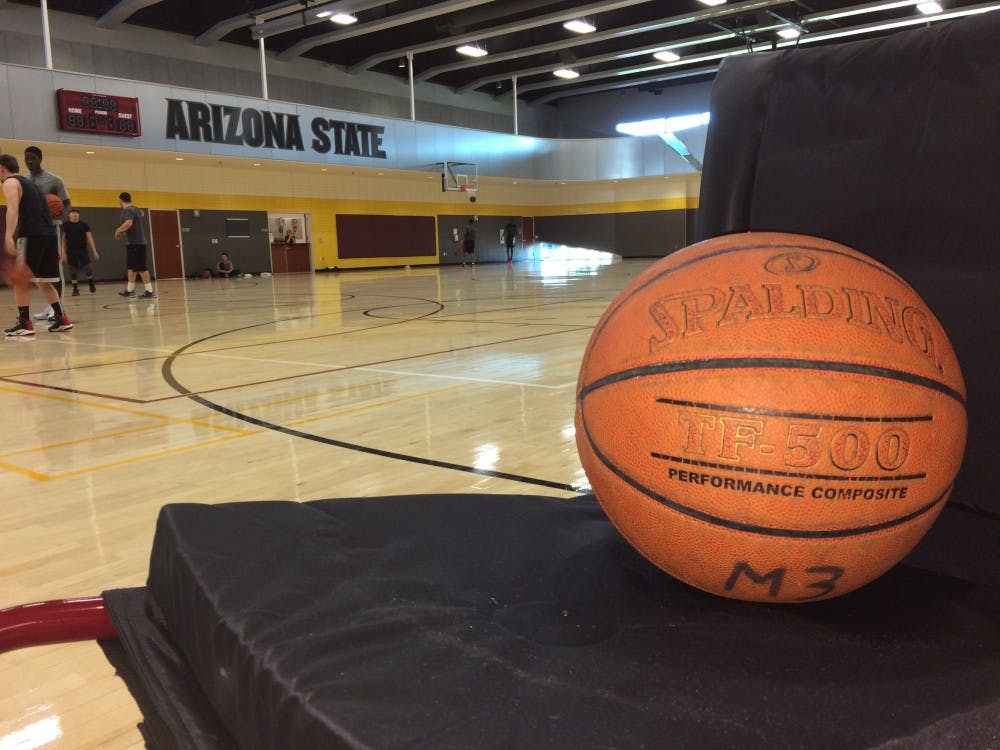Some of the best athletes around the world were brought together this year to compete and showcase their skills in Austria. The Special Olympics Winter World Games just concluded March 25, but sadly some of these athletes aren't fully accepted by the community around them.
Nick Hilton, a Special Olympics athlete who won gold and bronze medals while representing the U.S. in snowshoeing races this year, spoke about how kids at his former high school picked on him because of his disability in an interview with ESPN. Unfortunately, this is a problem that people with disabilities still face today, including at ASU.
“There is so much need to increase awareness about living with disability in general, and at ASU specifically,” said Associate Professor Monica Gaughan, the faculty adviser for the ASU student group Dis/Ability Matters Now in an email.
Even President Donald Trump and former President Barack Obama have been caught demeaning people with disabilities, which shows the scope of negative attitude.
“The President of the United States thinks it is okay to make fun of people with disabilities, so unfortunately, I would imagine this is going to happen even more often,” Gaughan said. “Children follow the role modeling behavior of adults; at this point, civility and kindness are at a low ebb in American society.”
This past year on the campaign trail, Trump mocked Serge Kovaleski, a reporter for The New York Times with a disability. When Trump quoted Kovaleski, he flailed his arms around spastically. People believed that he was making fun of the reporter’s arthrogryposis, (cq) but Trump claims he did no such thing.
“I found the visual imagery of President Trump making fun of the reporter to be even more disturbing than his actual words because that is what made it clear he was mocking him for his disability,” Gaughan said. “I would imagine that people with physical disabilities had flashbacks to fourth grade — that was the last time I saw such blatant public cruelty toward a disabled person.”
In 2009, Obama made a joke about the Special Olympics on The Tonight Show with Jay Leno. He said that his bowling score “was like Special Olympics or something.” Comments like these, especially coming from the leader of the country that these athletes are representing, diminish the athlete’s accomplishments. What they have achieved is amazing despite the adversity they must face everyday.
“When people see someone with that authority make statements like that, it becomes more acceptable for them to do it as well,” said Alexandra White, vice president of the Dis/Ability Matters Now club in an email. “Comparing one’s own sub-par bowling skills to that of a special Olympic athlete simultaneously demeans Special Olympic athletes and lessens their accomplishments.”
The Special Olympics are very important in today’s society, because it helps people learn more about how the athletes competing in these events are just like them.
“I was a volunteer for several years in my preteen and teen years, and the effect it had on me was to dispel many of my misconceptions about people who live with cognitive disabilities,” Gaughan said. “I came to understand that we are all just people, and I think that is an especially important understanding for young people to develop. Opportunities like Special Olympics and the Paralympics mean that more people can learn about the value of sports, physical activity, competition, and team work — all activities that build character and strengthen society for everyone.”
Special Olympic athletes should not have an emphasis on “special,” it should be on “athletes.” What these competitors accomplish day in and day out is amazing. When competing in sports, you should only be defined by what you can achieve.
“(The Special Olympics) raises awareness regarding the tenacity, commitment and strength that is shared among all true athletes regardless of disability, race, gender status,” White said.
Stigmas against people with disabilities need to stop spreading among children, and it starts with the adults. In order to send a message, grown ups and young adults need to stop picking on people who have disabilities and speak up against that activity publicly when it happens around them.
ASU’s Disability Resource Center is very supportive in helping professors understand the challenges for students with disabilities and helping them with accommodations to overcome these difficulties. Students can also help in this movement by standing up, helping out and learning more about their fellow students who face challenges that they may not be aware of.
Reach the columnist at kmarlin1@asu.edu or follow @kynan_marlin on Twitter.
Editor’s note: The opinions presented in this column are the author’s and do not imply any endorsement from The State Press or its editors.
Want to join the conversation? Send an email to opiniondesk.statepress@gmail.com. Keep letters under 500 words and be sure to include your university affiliation. Anonymity will not be granted.
Like The State Press on Facebook and follow @statepress on Twitter.




